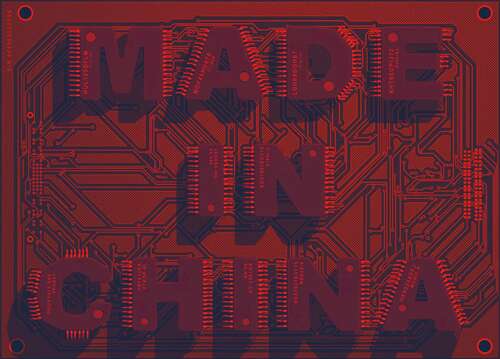The big picture: The United States has spent years trying to slow China’s progress in sectors like semiconductors and AI through sanctions and export controls. Intel’s CEO commented that this strategy is impacting China’s semiconductor manufacturing capabilities, underscoring the cooperation of countries like Japan and the Netherlands. These remarks echo statements from TSMC and Nvidia, though uncertainties about supply chains persist in this highly interconnected industry.
Speaking at the World Economic Forum in Davos, Intel CEO Pat Gelsinger asserted that China’s semiconductor development would lag a decade behind leading countries due to U.S. sanctions on crucial chipmaking components.
Gelsinger explained that the tools available to China would restrict the country to produce 14nm and 7nm chips for now. In contrast, companies such as TSMC in Taiwan, Samsung in South Korea, and Intel in the U.S. are gearing up to implement more advanced processes for 3nm, 2nm, and even smaller semiconductors in the coming years. It is anticipated that TSMC’s 2nm chips will be featured in the iPhone 17, set to debut in 2025.
The US enacted controls to prevent China from accessing the necessary tools for the latest chip technology in response to China’s rapid growth in the sector. However, the US didn’t hold China back alone. A key element of the policy’s effectiveness has been the cooperation of Japan and the Netherlands.
ASML, a Dutch company and the world’s largest supplier of lithography tools essential for producing sub-14nm semiconductors, recently shipped its latest high-end EUV machines to Intel. This move is part of Intel’s efforts to regain its position at the forefront of chipmaking, having fallen behind TSMC and Samsung.

At the Davos forum, Gelsinger discussed the fragility of global supply chains, a concern that became apparent during the pandemic. He noted how decades of industrial policy have concentrated chip manufacturing in Asian countries, a trend the US is now attempting to reverse with the Chips Act. This legislation aims to enhance America’s technological self-sufficiency.
Last year, TSMC founder Morris Chang acknowledged that U.S. sanctions might temporarily benefit TSMC but expressed skepticism about the long-term effectiveness of such measures. He predicted that the sanctions would keep China several years behind in chipmaking technology. However, he also noted that countries like the US would need substantial time to develop their chipmaking capacities.
American officials are optimistic that the U.S. can start producing and packaging the most advanced semiconductors within a decade. In contrast, Nvidia’s CEO believes this goal might take closer to 10 or 20 years.

